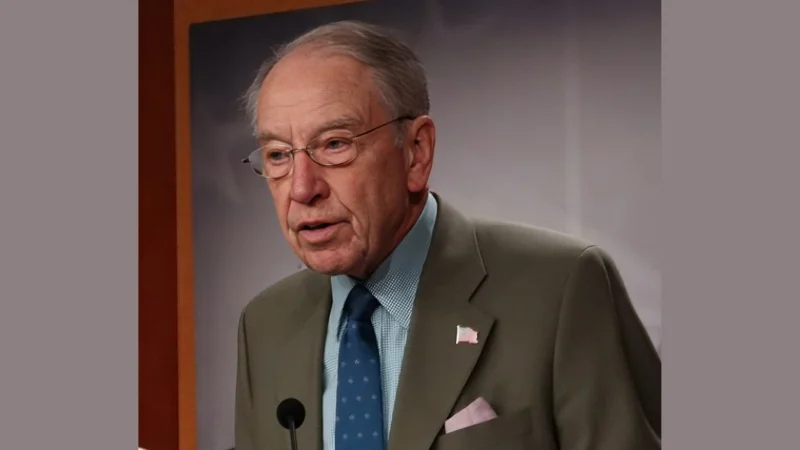The Senate Judiciary Committee convened a hearing on October 28, 2025, to address rising costs in the seed and fertilizer industries and explore ways to restore competition for American farmers. Senator Chuck Grassley of Iowa, who chairs the committee, opened the session by highlighting concerns he hears from farmers about limited choices and high prices for essential agricultural inputs.
Grassley noted that U.S. farmers are highly productive but operate with slim profit margins. He said that increases in input costs or difficulties in switching suppliers have broad impacts: "If input costs go up or switching suppliers is too hard, that pinch is felt by every farmer, family and consumer in the world."
According to Grassley, data from the USDA’s Agricultural Prices reports show significant increases in prices paid by farmers for seed and fertilizer between January 2021 and January 2025. He attributed part of this trend to inflation rates during the Biden administration. Grassley added that these higher costs come amid volatile commodity markets, increased borrowing expenses, and weather-related risks.
The hearing aimed to examine several factors driving these trends, including energy market fluctuations affecting nitrogen production, global supply disruptions, logistics issues, and industry consolidation. The committee also sought practical steps to improve transparency and competition.
Grassley advocated for his Fertilizer Research Act, which would require the Department of Agriculture to conduct a comprehensive study of the fertilizer industry and provide recommendations for regular public reporting on pricing.
He also called on the Trump administration to lower countervailing duties on phosphate imports from Morocco—a policy implemented by the Biden administration in 2024—which he argued has harmed American farmers: "The Biden phosphate duties have only hurt farmers by boxing out access to this important market on an essential input with no substitute."
Grassley described how consolidation over two decades has left a few large companies controlling both seeds and related products such as pesticides and digital farming tools. He explained that integrated systems make it difficult for farmers to switch brands because their data becomes tied to one company’s platform.
On fertilizer pricing, Grassley pointed out that global shocks can raise prices quickly while regional price declines may lag behind. Contract terms like loyalty rebates or early-order calendars can further limit options for farms or local retailers.
"Now, nobody here wants to punish innovation," Grassley said. "We want better yields, healthier soils and quality products. But we also want competition that’s fair, transparent and local competition that a farmer can actually expect when he or she sits down to make a purchase."
He outlined four areas of focus: transparency about effective pricing; portability so farmers control their own data; fair dealing in contracts; and accountability when mergers fail to deliver promised benefits.
Grassley thanked Senator Dick Durbin for helping set a bipartisan tone at the hearing: "I appreciate Senator Durbin’s partnership in setting a constructive, bipartisan tone today." The committee planned to hear testimony from farmers, producers, and industry experts.
"My goal is simple: identify practical steps — legislative and regulatory — that respect innovation and property rights but restore real, on-the-ground competition," Grassley concluded. "When farmers win fair choices at fair prices, rural communities win, consumers win and America’s food security wins."









